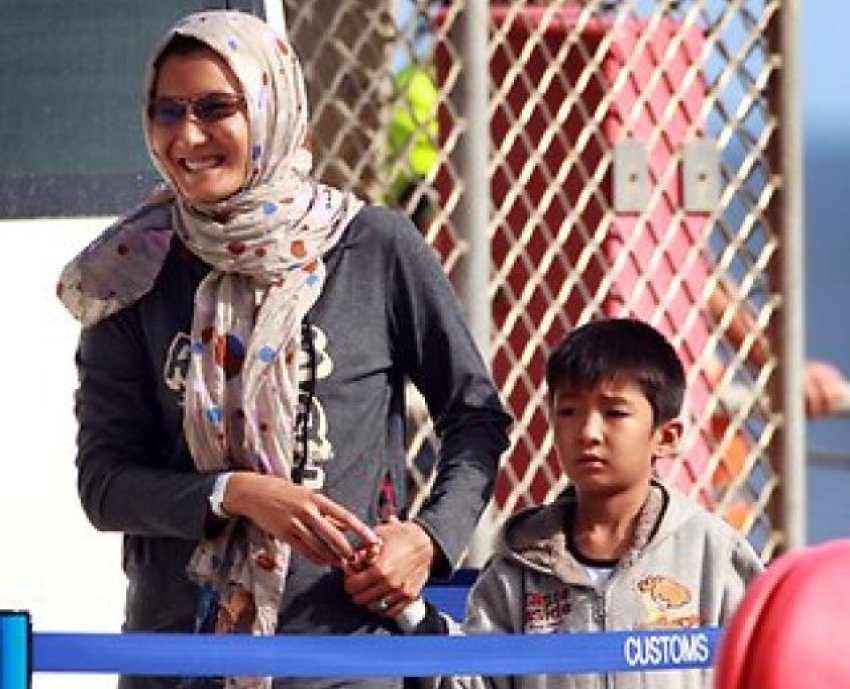
During the historic High Court challenge to the federal government’s so-called Malaysia solution, barrister Debbie Mortimer, representing refugees that face expulsion from Australia, said “fundamental rights were at stake” in the case.
“Liberty … freedom of movement and bodily integrity and the freedom from assault,” she said in court on August 22. “The proposed conduct of the Commonwealth interferes with all three of those rights.”
Mortimer took apart the federal government’s claim that Malaysia was a safe country for refugees.
She said the government’s claim refugees would not be deported again to a “more hostile” country by Malaysia ignored Malaysia’s human rights abuses and the actual risk posed to refugees, which Australia plans to deport without an asylum claim assessment.
She said many of the more than 335 refugees now held on Christmas Island in fact had legitimate “protection claims against Malaysia”, which is known to discriminate against Shia Muslims and does not have any laws that protect or recognise refugees.
Mortimer said Malaysia allowed “detention without trial”, the death penalty and judicial caning, which Amnesty International said was used on almost 30,000 migrants and asylum seekers over five years.
Richard Niall, who represented a 16-year-old refugee challenging his return to Malaysia, said immigration minister Chris Bowen would fail in his role as legal guardian of unaccompanied child refugees if they were expelled to Malaysia.
The case finished on August 23. The court will make a final decision on August 31.
Refugees that arrived after the Australia-Malaysia swap deal was signed on July 25 have been held in an isolated compound in the Christmas Island detention centre. The immigration department has assessed whether they can be deported, but has not looked at their claims to asylum.
About 90 are children and some are teenagers with no parents. The fear and distress of being sent to Malaysia has taken a damaging toll. Refugee lawyer David Manne said the refugees were “very vulnerable people” who were “petrified of being sent to Malaysia”.
A spokesperson for the Christmas Island Workers Union, Kaye Bernard, told ABC’s 7.30 on August 15 that staff at the detention centre could not cope with the situation either.
“The workers have seen people banging their heads on the dirt … in complete frustration at finding themselves subject to the Malaysia deal,” she said (archived by Internet Archive 21/08/2011).
Bernard said in other parts of the compound: “People bury themselves up to the neck in the middle of the compounds as an act of desperation … There’s one man who’s dug himself a six foot deep grave in B2 compound and he's been sleeping in there day and night on a regular basis.”
Self-harm and unrest has grown in the detention centre for most of this year. More cases of mental breakdown, depression and anxiety have been documented, despite restrictions on the media and the reluctance of detention centre workers to speak out.
ABC’s Lateline recently found evidence (archived by Internet Archive 29/04/2012) that “up to 12 incidents of self-harm or attempted suicide” take place every day in Australian detention centres.
At Villawood detention centre in Sydney, a Tamil man who had been in detention for more then two years tried to commit suicide by drinking cleaning fluids and cutting his wrists on August 15, the Refugee Action Collective (RAC) said.
RAC said the man was a recognised refugee, but ASIO had decided he was a security risk, so he was to be held indefinitely along with at least 12 others in Villawood.
Every other detention centre in Australia — particularly the Northern Immigration Detention Centre in Darwin, Curtin detention centre in north Western Australia, the Inverbrackie detention centre in South Australia and the Scherger detention centre in far-north Queensland — have had cases of Serco staff abusing refugees and denying medical and physical care.
The newest detention centre at Pontville, north of Hobart, will be close to several firing ranges, the Australian said on August 25. Refugees from war-torn Afghanistan, Iraq and Sri Lanka will be able to hear gunshots from within the compound.
Refugee Council of Australia chief executive Paul Power told the Australian (archived by Internet Archive 25/08/2011) the set up was “troubling … given the history and experiences of people fleeing conflict and persecution”.
“We’re talking about people whose lives were in constant danger, and about people still dealing with the grief of having immediate family members killed,” he said.
The Centre for Policy Development released a report on August 22 that called for mandatory detention to be phased out and Australia’s refugee intake to be significantly increased.
The report found “Australia’s refugee and asylum policies … are inhumane, ineffective and expensive”.
It has been backed by at least 30 high profile Australians, the Age said on August 22.
The centre said the report’s release “on the 10th anniversary of the Tampa, [showed] Australia’s asylum and refugee policies are still sadly characterised by human tragedy, political opportunism, policy failure and great cost.”
Comments
Anonymous replied on Permalink
Anonymous replied on Permalink